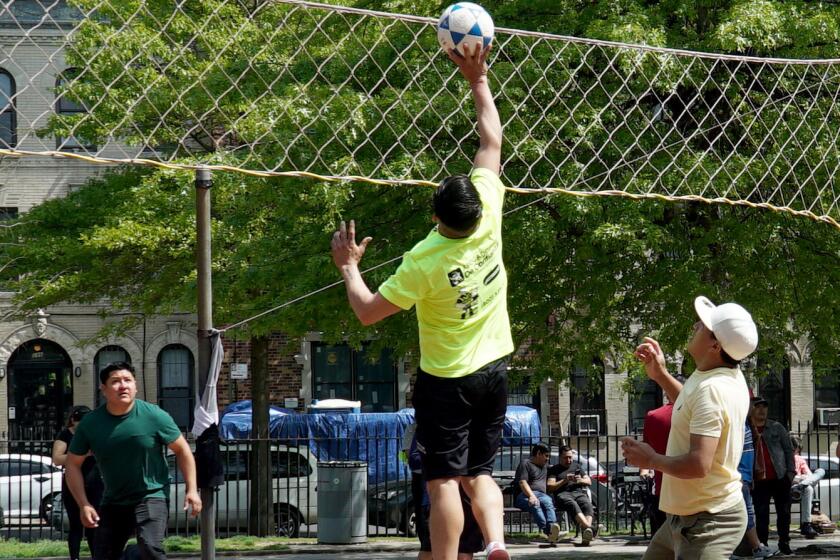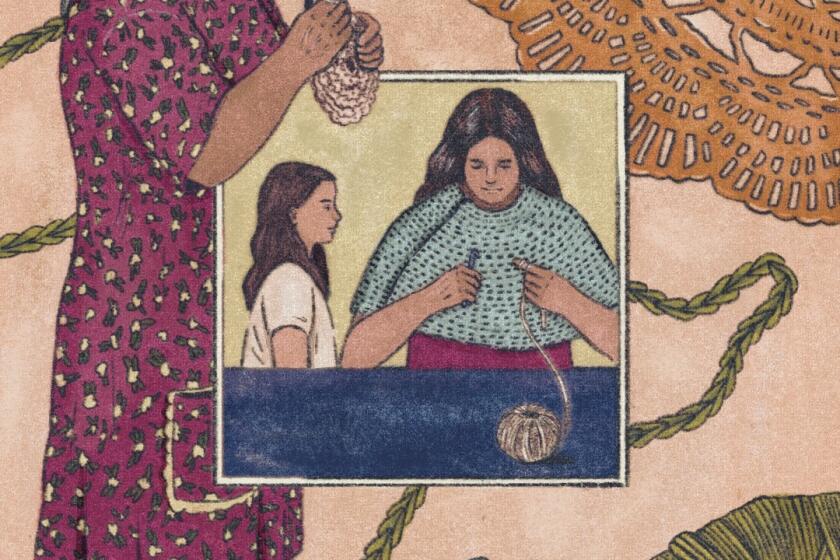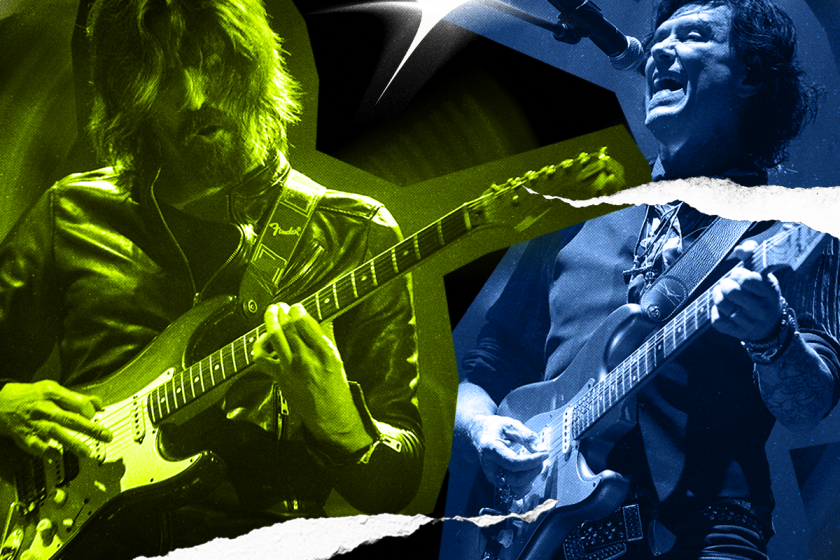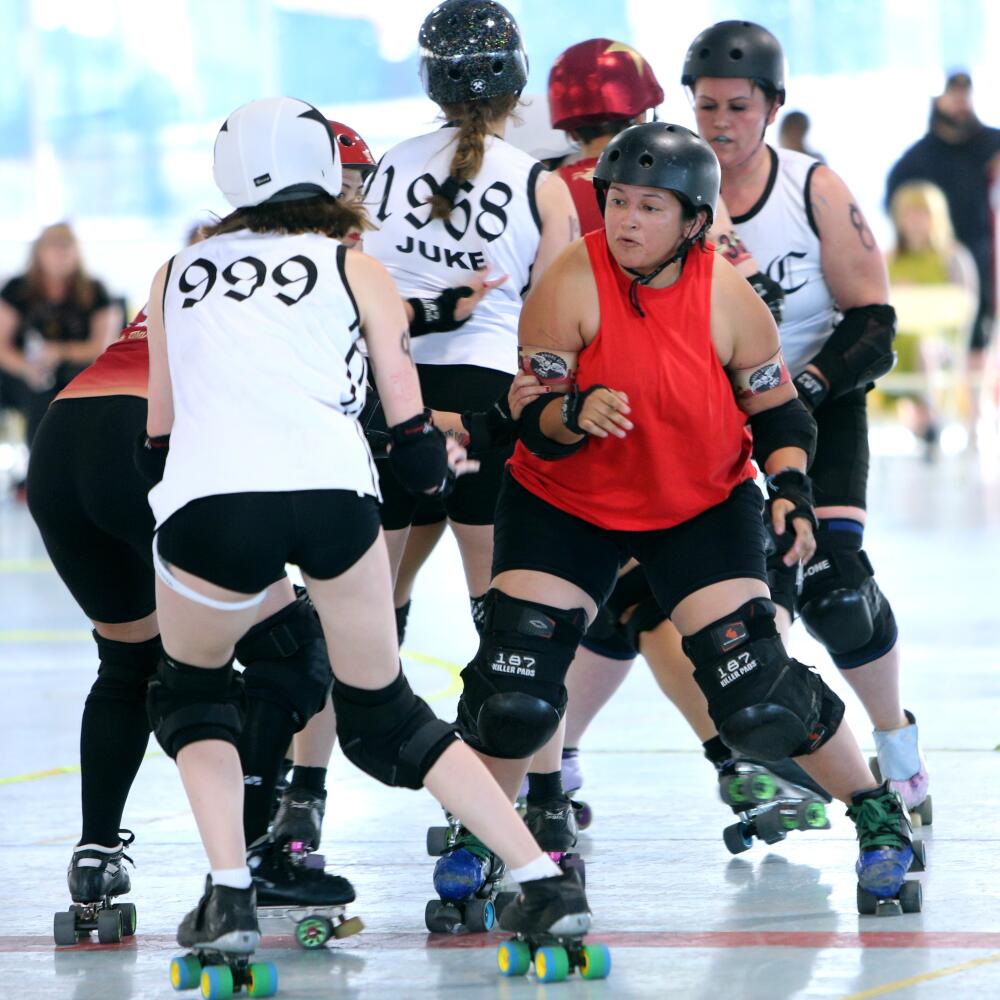
- Share via
It takes mental and physical strength to be an athlete, but it takes a different kind of passion to battle it out on the track. These women lace up their skates and wear knee pads, elbow pads, helmets and mouth guards — all for the love of roller derby.
Latinas are often underrepresented in sports. But a group of Latinas in L.A.’s Angel City Derby league are changing the narrative.
Nohemy Martinez, known as “Noh Mames!” on the track, grew up in a low-income family that could not afford her participation in sports. When she was first introduced to roller derby, she thought it was a violent sport. Now, 10 years later, she can’t seem to get away from it.
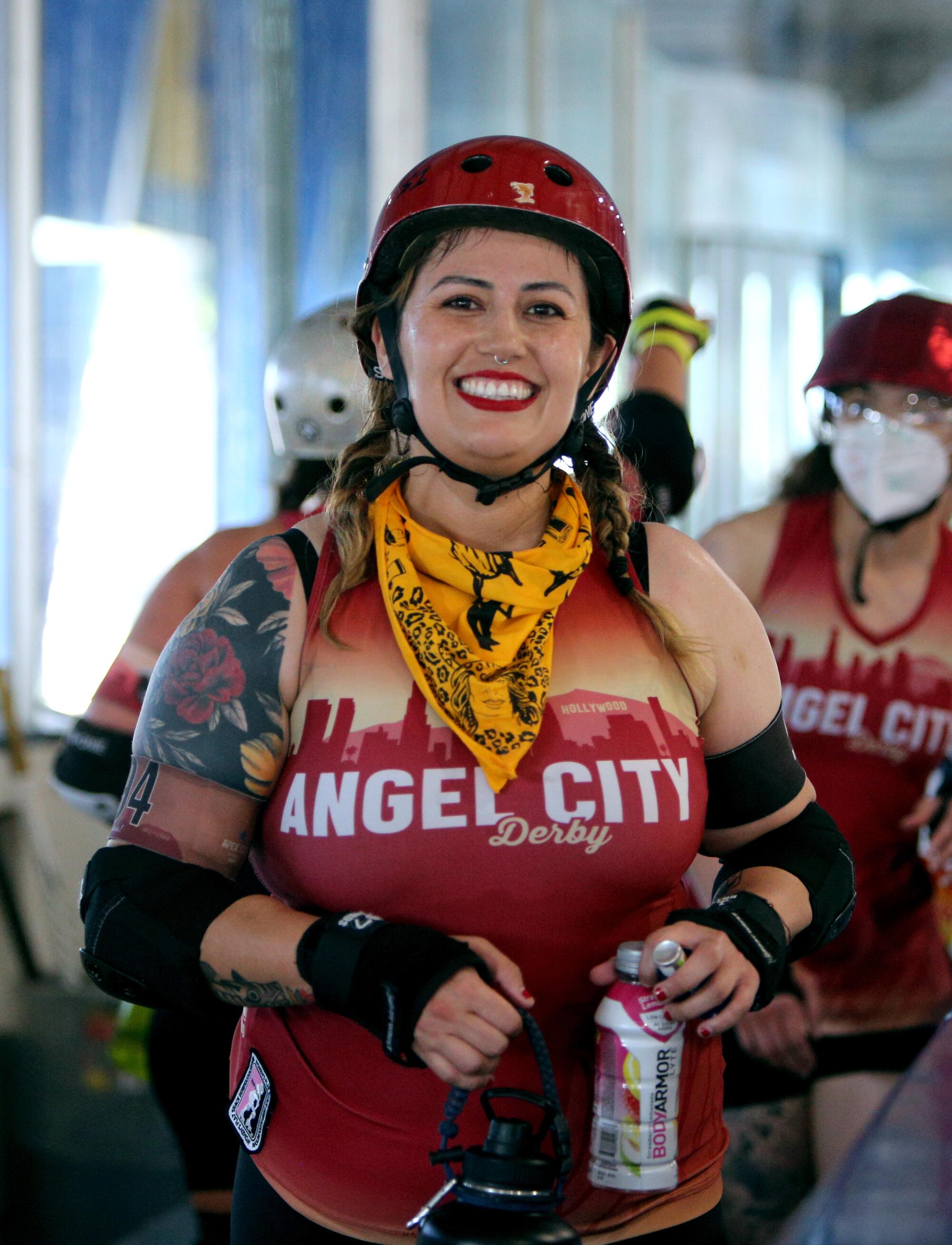
“For me to be in this sport, it is extremely empowering and it gives me a sense of individuality,” Martinez said. “It teaches me lessons every single time.”
Martinez started out playing renegade roller derby, which allows for a more aggressive style. Players are allowed to make hits and moves that are now against the rules in flat track derby. She wanted to expand her involvement in the sport, and that’s when she joined Angel City.
Angel City Derby was founded in 2006 and is a member of the Women’s Flat Track Derby Assn. It is the first flat track roller derby league in L.A. and the second roller derby league overall, after the L.A. Derby Dolls. The organization now has multiple teams ranging from beginner to advanced.
Angel City has competed on the national level and won multiple roller derby championship titles. Even with all of its success, the league faced substantial setbacks during the COVID-19 pandemic, including losing its home track in Gardena. The track was where it hosted derby games, workshops, workouts and welcomed anyone interested in roller derby.
For over 180,000 Ecuadoreans in New York City, ecuavoley, a sport from their homeland, brings together identity, community and an opportunity for mutual aid.
Angel City Director Rachel Johnston, known as “Rachel Rotten” by her teammates, says roller derby is a community-driven sport. She saw one of the biggest roller derby resurgences after the 2009 movie “Whip It.”
“I think it was a really important film for the sport because it drove the growth of membership for roller derby worldwide,” Johnston said. “It’s fun to note that quite a few members of Angel City and L.A. Derby Dolls were involved in the movie, either as skaters or trainers.”
Sara Aviles, known as “Juggernaut Joey,” has been with Angel City since 2020 and said that the sport found her when she needed it the most. Aviles said that seeing how a team worked together on the track and the positive energy around the sport are what got her started.
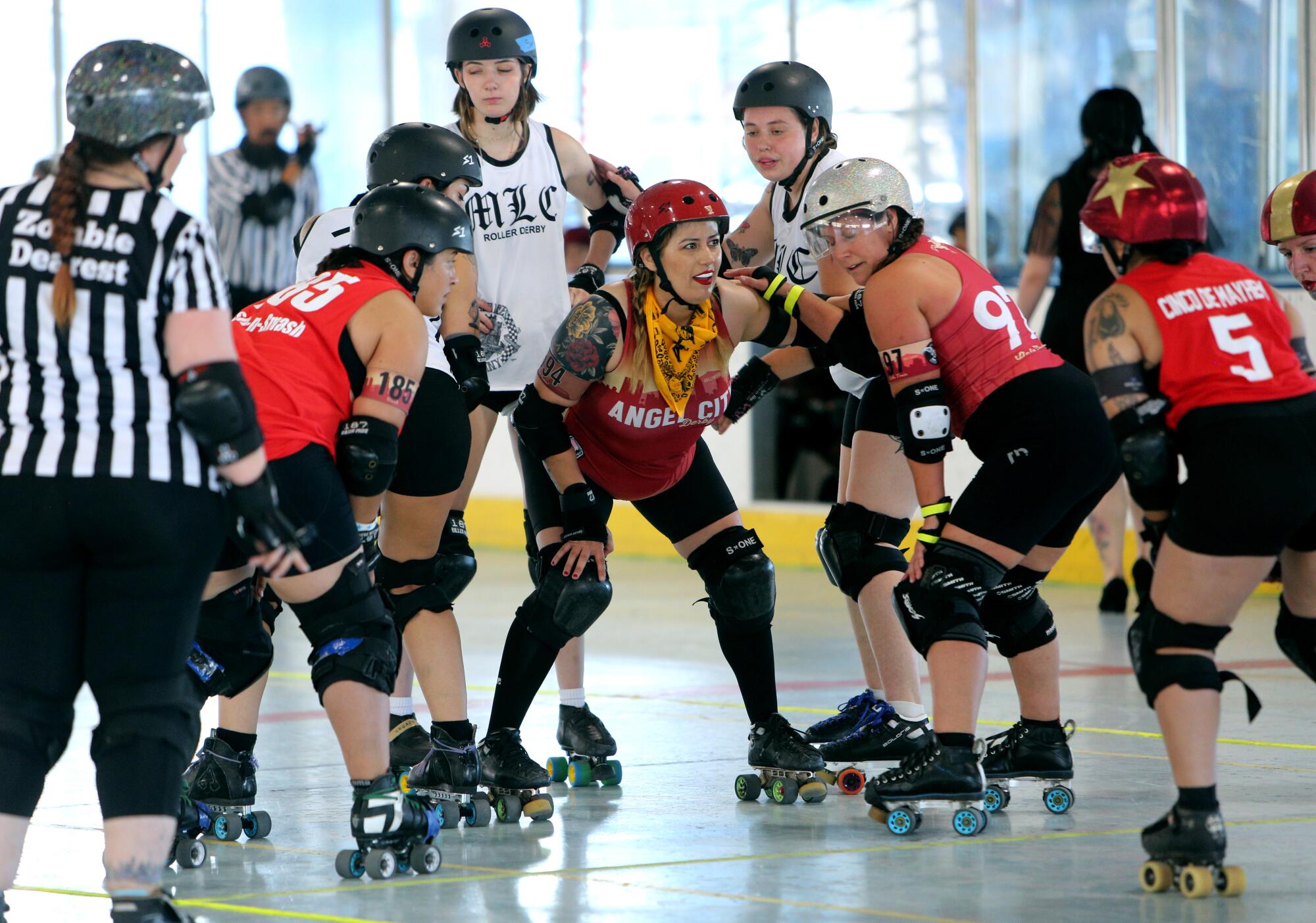
“As a woman, there’s a sense of cattiness in different hobbies that you join, and I could tell that this was just way different,” Aviles said. “Aggression was appreciated and expression was appreciated.”
After a bad breakup, roller derby gave Aviles a space to heal. It allowed her to channel her emotions and build camaraderie with the other skaters.
“It feels like home. It helped give me a little sense of strength and made me feel like I could accomplish things with my body again,” Aviles said.
With every stitch, every loop and every turn of the hook, I carry the legacy of my great-grandmother and my mom, as well as the cultural history of Mexico.
All three women felt that roller derby allowed them to be free and authentic. Unlike “Whip It,” which has some dramatized features, Martinez said everything out on the track is real. Every hit, every push and every ounce of effort is pure.
“The biggest misconception that everybody always assumes is, first of all, they think it’s staged, they think it’s fake. And second, they think it’s just about fighting,” Martinez said.
Andrea Alvarez, known as “Cinco de Mayhem,” got involved in roller derby when she was 14 years old. After having a negative experience with cheerleading as a teen, she found refuge in roller derby. The sport served as a space where she felt accepted.
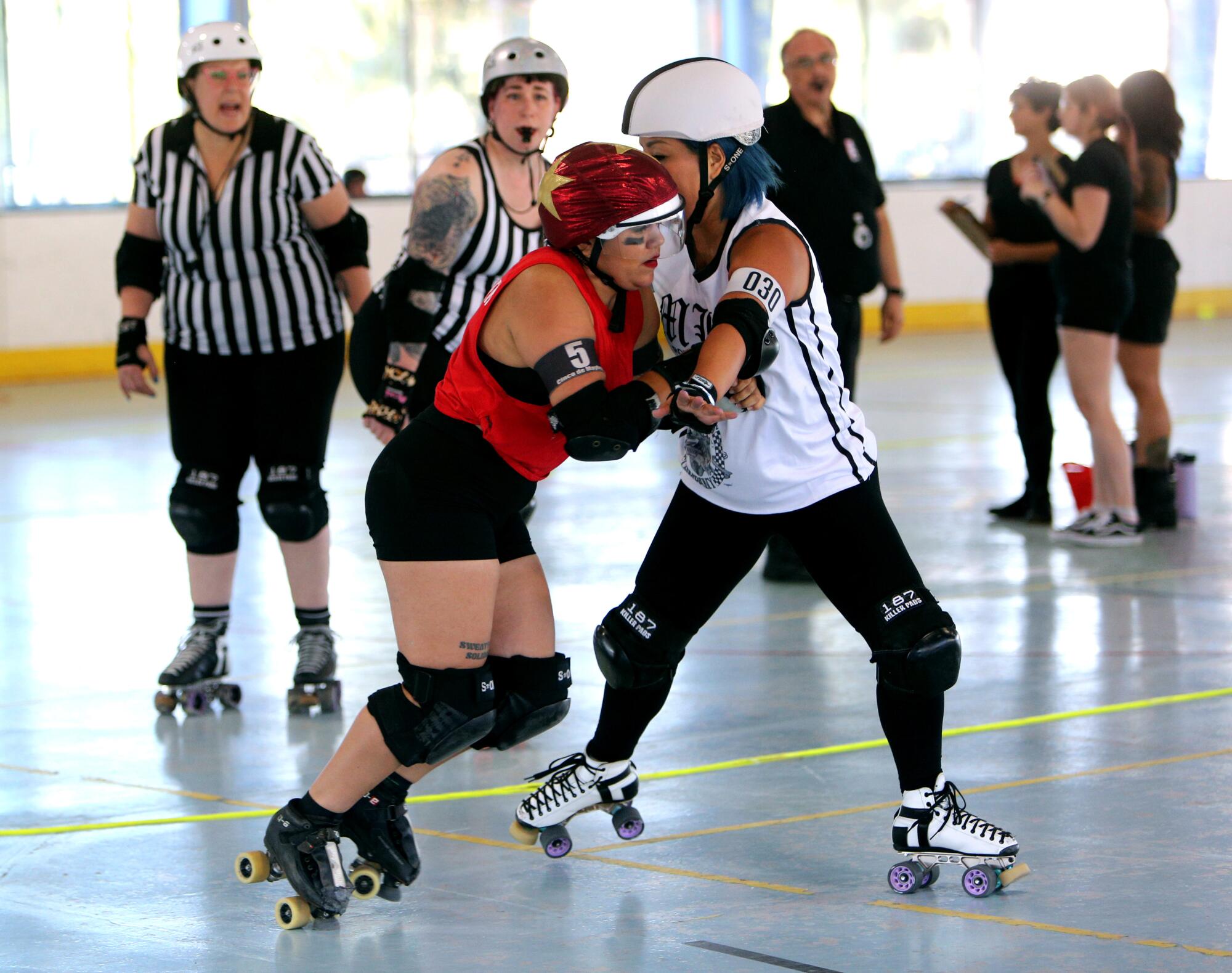
“Being able to interweave different aspects of who I am — so like my Latino identity and then my competitive identity — together really just makes me feel more whole of a person,” Alvarez said.
Roller derby requires a lot of mental strategy. Every move and hit has to be calculated to give the team an advantage. But for Martinez, it’s more than just about winning; it’s about building community.
Rock en español in Southern California generated a vibrant “Rock Angelino” scene that brought together Latin American immigrants and U.S.-born Latines of different generations.
She is one of the founding members of Fuego Latino Roller Derby, which is made up of a “Latinx/e athletes from the U.S., Latin America and the world.” The idea for the team stemmed from a lack of representation of Latinx skaters throughout the country. The team aims to foster a space of advocacy for equitable accessibility to the sport.
“I get really excited when I see other Latinas or nonbinary Latino athletes join roller derby because I know it’s a space where they’re going to reap the same benefits that I reaped in my experience,” Martinez said.
Fuego Latino will be making its debut in Las Vegas in August. Martinez hopes that the team will be able to attract newcomers and bring visibility to the sport she loves.
More to Read
The Latinx experience chronicled
Get the Latinx Files newsletter for stories that capture the multitudes within our communities.
You may occasionally receive promotional content from the Los Angeles Times.

